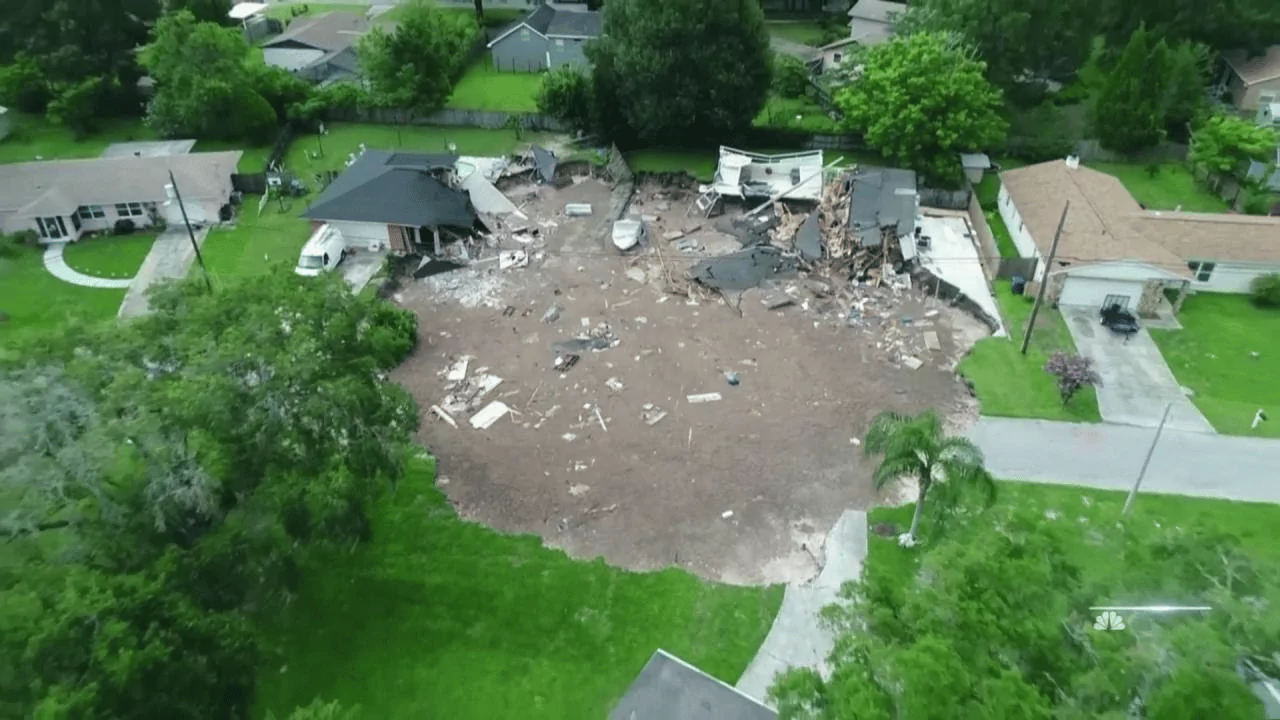No, standard house insurance does not cover sinkholes. Sinkholes are natural phenomena that occur when the ground collapses due to erosion, water drainage, or other factors. They can cause severe damage to your property and pose a risk to your safety. If you live in an area where sinkholes are common, you may need to purchase a separate sinkhole insurance policy to protect your home.
Understanding Sinkholes
Definition
A sinkhole is a depression or hole in the ground that forms when the surface layer collapses into an underlying void. Sinkholes can vary in size, shape, and depth. Some are small and shallow, while others are large and deep enough to swallow buildings, cars, or even people.
Causes
Sinkholes are caused by natural processes that weaken the ground over time. The most common cause is the dissolution of limestone, dolomite, or gypsum by acidic groundwater. These rocks are soluble and can form underground cavities that eventually collapse. Other causes include heavy rainfall, flooding, drought, mining, construction, or human activities that alter the water table or drainage patterns.
How to spot sinkholes
Sinkholes can be hard to detect before they form, but there are some signs that may indicate a potential sinkhole on your property. These include:
- Cracks in the walls, floors, or foundations of your house.
- Doors or windows that do not close properly or become misaligned.
- Depressions or holes in the yard or driveway.
- Sagging or slumping of fences, trees, or utility poles.
- Changes in the water level or quality of your well or pond.
- Strange noises or vibrations from the ground.
If you notice any of these signs, you should contact a professional geologist or engineer to inspect your property and assess the risk of a sinkhole.
Sinkhole Insurance Coverage
What it Covers?
Sinkhole insurance is a type of coverage that pays for the repair or replacement of your house and personal belongings if they are damaged or destroyed by a sinkhole. It also covers the cost of stabilizing the ground and filling the sinkhole to prevent further damage. Sinkhole insurance may also cover the loss of use of your house, meaning the additional living expenses you incur if you have to relocate temporarily while your house is being repaired.
What it Does Not Cover?
Sinkhole insurance does not cover damage caused by other types of ground movement, such as landslides, earthquakes, or subsidence. It also does not cover damage caused by man-made sinkholes, such as those resulting from mining, drilling, or construction. Additionally, sinkhole insurance does not cover damage to your landscaping, septic system, swimming pool, or other structures that are not attached to your house.
Who Needs Sinkhole Insurance?
States Where Sinkholes are Common
Sinkholes can occur anywhere, but some states are more prone to them than others. According to the U.S. Geological Survey, the states with the highest risk of sinkholes are Florida, Texas, Alabama, Missouri, Kentucky, Tennessee, and Pennsylvania. These states have large areas of karst terrain, which is characterized by soluble rocks, caves, springs, and sinkholes.
How to Get Sinkhole Insurance?
Sinkhole insurance is not included in standard house insurance policies, so you need to purchase it separately if you want to be covered. The availability and cost of sinkhole insurance vary by state and insurer. Some states, such as Florida and Tennessee, require insurers to offer sinkhole insurance as an optional endorsement to your house insurance policy. Other states, such as Texas and Missouri, allow insurers to exclude sinkhole coverage from your house insurance policy, meaning you have to buy a standalone sinkhole insurance policy from a specialty insurer. The price of sinkhole insurance depends on several factors, such as the location, age, and value of your house, the type and extent of coverage, and the deductible amount.
Is Sinkhole Insurance Worth It?
Weighing the Costs and Benefits
Sinkhole insurance can be expensive, especially if you live in a high-risk area. The average annual premium for sinkhole insurance in Florida is about $1,500, according to the Florida Office of Insurance Regulation. However, the cost of repairing or rebuilding your house after a sinkhole can be much higher, ranging from tens of thousands to millions of dollars, depending on the severity of the damage. Therefore, you need to weigh the costs and benefits of sinkhole insurance and decide whether it is worth it for you.
Considerations for Homeowners
Before you buy sinkhole insurance, you should consider the following factors:
- Sinkhole risk on your property. To determine if your area is prone to sinkholes, consult your state geological survey or Department of Natural Resources sinkhole maps and reports. A geologist or engineer can assess your soil and foundation.
- Home and personal property worth. A sinkhole may damage your home and its belongings, so estimate the cost of repairs or replacement. You should also check your home insurance policy for sinkhole coverage.
- Required coverage and deductible. Choose sinkhole insurance that covers the full cost of rebuilding or replacing your home and belongings. Choose a deductible you can afford to pay out of pocket in case of a claim.
- Insurer reputation and finances. Choose a sinkhole insurance provider with a solid reputation and financial rating. Check the insurer’s customer reviews and complaints and how they handle claims and disputes.
Sinkholes are unpredictable and potentially devastating natural disasters that can affect your home and your finances. If you live in an area where sinkholes are common, you may want to consider buying sinkhole insurance to protect your property and peace of mind. However, you should also do your research and compare the costs and benefits of sinkhole insurance before you make a decision.





